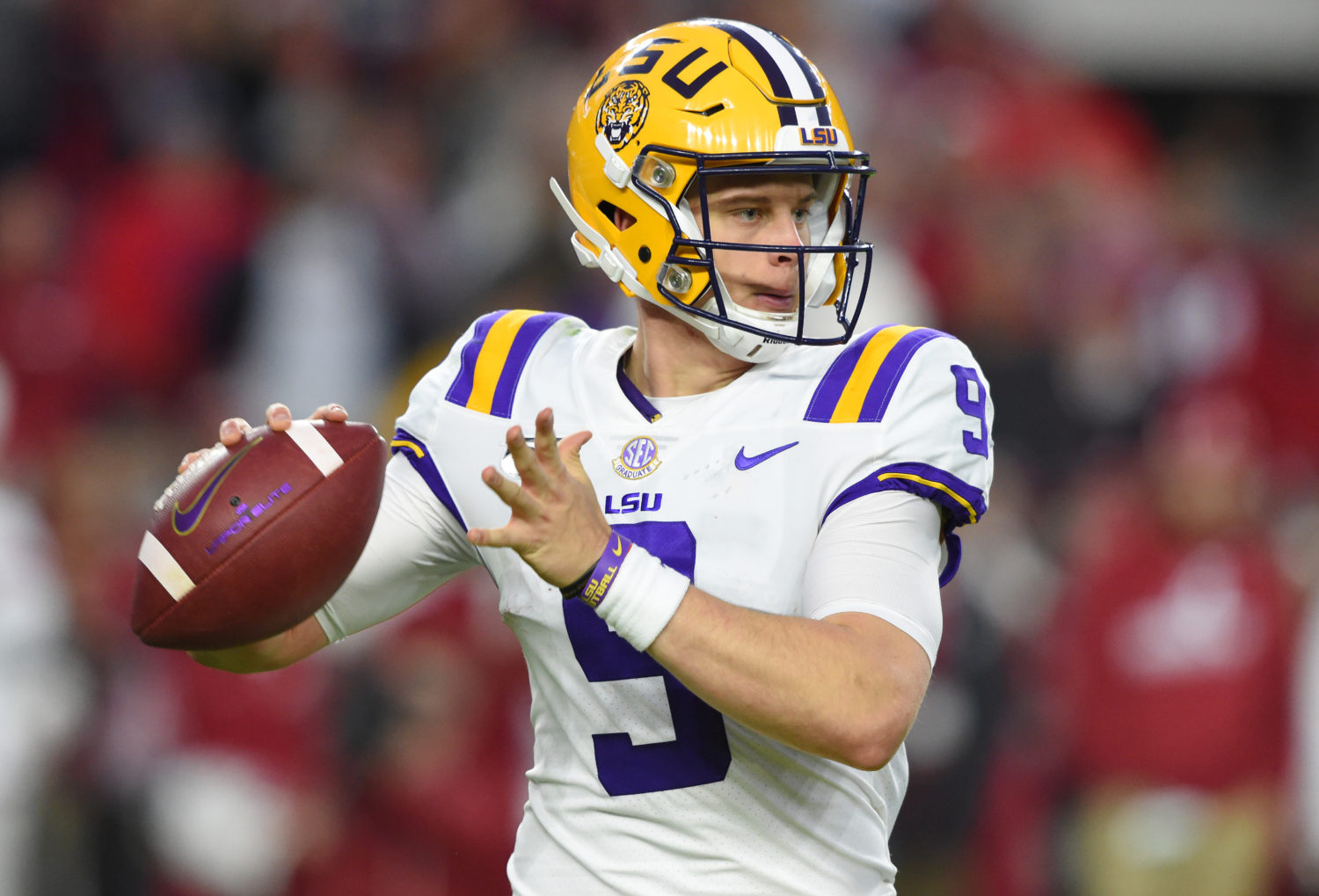
LSU football: How long can Joe Burrow continue to carry this defense?
By Les East
Published:
Joe Burrow beat Alabama.
He has led LSU to the No. 1 ranking in the country and the cusp of an SEC West division championship.
He has broken the Tigers’ major single-season passing records.
Now comes his biggest challenge: Carrying the LSU defense to the finish line.
Arkansas will be a piece of cake. Texas A&M will be tougher but doable. Georgia will be tougher still.
Assuming the Tigers reach the College Football Playoff – a pretty reasonable assumption at this point – either the LSU defense will have to be better than it has been or Burrow will have to be even better than he has been.
Burrow has covered for this defense several times this season. And it looks like he’ll have to do it some more.
Maybe the Texas game was an aberration.
Maybe the Vanderbilt game was nit-picking.
The first half against Florida didn’t matter because of the second half against Florida.
The Alabama game didn’t matter because when you beat Alabama after eight straight losses nothing else matters.
But Ole Miss?
Ole freakin’ Miss?
Yeah, LSU won Saturday in Oxford and won fairly easily, 58-37.
But this one doesn’t get dismissed as easily as Alabama or Texas or Florida. Not even Vanderbilt.
Ole Miss had 614 yards. Ole Miss ran for 402 yards.
Ole Miss. The University of Mississippi.
The LSU defense is a problem. A big problem.
Perhaps a lethal problem, perhaps an Achilles’ heel on the best team in college football.
Perhaps not.
But Ole Miss?
OK, so Rich Rodriguez is a really good coach. His offenses have put up big numbers on good defenses. For a long time.
Fair enough.
But this Ole Miss offense isn’t what Rodriguez had at Arizona or Michigan or West Virginia or even Tulane. (Google: Tulane, undefeated, 1998).
A freshman named John Rhys Plumlee, a nice player, looked like Joe Burrow’s top competitor for the Heisman Trophy during the second half Saturday in Vaught-Hemingway Stadium.
After rushing 5 yards for a touchdown in a first half that produced a 31-7 LSU lead, Plumlee ran for 46-, 60- and 35-yard touchdowns in the second half. He finished with 21 carries for 212 yards.
Jerrion Ely ran 13 times for 141 yards and Elijah Moore caught nine passes for 143 yards and a touchdown.
There have been mitigating circumstances amid LSU’s defensive problems. There have been injuries, there has been an adjustment to the lickety-split pace of the offense, to the less physical practices due to the new way of playing offense.
But the defense has gotten healthier. The offensive pace has been throttled back on occasion (in the Utah State and Auburn games especially) to accommodate the defense. There’s not much that can be done about the physicality of practice at this point.
But perhaps the most alarming aspect of the second-half meltdown against the Rebels is the fact that the defense had shown improvement during the middle part of the season. The line got healthier and coordinator Dave Aranda had found a more effective rhythm for when to blitz and when to drop back.
The pieces seemed to be coming together, despite a lot of yards and points produced by Bama as it frantically tired to keep up with Burrow.
But Ole Miss was different. The Tigers smothered a limited offense for a half. Then they fell apart.
The Rebels got no closer than 11 points in the second half because Burrow always had an answer when it was most needed.
Burrow has answered every challenge. He did it against Texas. He did it against Florida and Auburn. He did it most famously against Alabama. He did it when it was unexpectedly needed against Ole Miss.
After the game, the presumptive Heisman Trophy winner said, “Things have changed around LSU when you have 700 yards of offense and everyone is upset in the locker room.”
They should be upset.
Les East is a New Orleans-based football writer who covers LSU for SaturdayDownSouth.com. Follow him on Twitter @Les_East.







